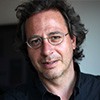By José Carlos Bouso

José Carlos Bouso is a clinical psychologist and a doctor of pharmacology. His areas of interest are psychopharmacology and the therapeutic properties of entactogens, psychedelics and cannabis. He has conducted therapeutic research with MDMA, pharmacological research with several substances of plant and synthetic origin and has also performed studies on the long-term neuropsychological effects of substances such as cannabis, ayahuasca and cocaine. He is author of the book "Qué son las drogas de síntesis" [What are synthetic drugs?], and co-author of “¿La marihuana como medicamento? Los usos médicos y terapéuticos del cannabis y los cannabinoides" [Marihuana as medicine? The medical and therapeutic uses of cannabis and cannabinoids] and "Ayahuasca y salud" [Ayahuasca and health]. His research has been published in scientific journals. He is currently the director of scientific projects at Fundación ICEERS.
Starting this year, ICEERS, in collaboration with IMIM, has begun their study "The quality of life in medicinal users." The study will last for three years and will be supported by Fundación CANNA.
Each quarter updates about this study will be posted on our website.
Update May 2015
The Health-Related Quality-of-Life Monitoring Programme for therapeutic members of cannabis clubs and associations with chronic illnesses was commenced approximately a year and a half ago. Through this programme we are evaluating how cannabis use affects the subjective perception of the quality of life of the patients who use it. The programme is aimed at patients with chronic conditions. It is hoped that this programme will provide deeper understanding of the potential benefits and risks of the use of cannabis by persons with chronic conditions.
Currently over 100 patients from all over Spain have expressed their interest in participating in the programme. Given that we only take patients with chronic conditions, it has not been possible to include them all in the programme. Although recruitment has mainly taken place through cannabis clubs and associations, we have also been contacted by persons who do not belong to these associations but who also qualify for participation. We have a website explaining the programme in detail:
In order to monitor patients, we carry out an assessment every four months. These assessments consist in filling out a series of questionnaires concerning different aspects of people’s health, and we take a hair sample to analyse the presence of cannabinoids.
So far we have had 53 patients who have completed the initial assessment, 22 patients who have completed the four-month assessment, 10 patients who have completed the eight-month assessment, and one patient who has completed the one-year assessment. A further 18 patients are in the course of completing one of these assessments.
The reason we have patients from different parts of Spain is mainly thanks to the CATFAC medical team and to a small association from Zaragoza known as CATA (Club de Autocultivo Terapéutico de Aragón [Aragon Home-grown Therapeutic Club]) which is composed mainly of medicinal users. In order to recruit patients, we continue to meet with the leaders of various clubs and associations, and to present the project at talks and informative events to which we are invited.
If you are interested in participating in this programme or in publicising it, you can contact Dr. José Carlos Bouso on the following telephone numbers:
93 188 20 99 / 688 913 471,
or by e-mail:
research@iceers.org
Written by the ICEERS team


